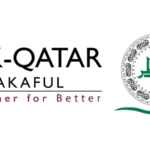A high-level meeting of the Senate Standing Committee on Information Technology and Telecommunication was held today at Parliament House, chaired by Senator Palwasha Mohammad Zai Khan. The committee engaged in a wide-ranging discussion on key digital developments, including the proposed Regulation of Artificial Intelligence Bill, 2024, progress on indigenous Large Language Models (LLMs), telecom service quality, chip design, and a national crackdown on illegal call centers.
The committee reviewed the AI legislation introduced by Senator Dr. Afnan Ullah Khan, which aims to lay down a robust legal and ethical foundation for AI development and deployment in Pakistan. With the global tech landscape shifting rapidly, the committee emphasized the urgent need for regulation to ensure responsible AI usage in both public and private sectors.
The Ministry of IT and Telecommunication (MoITT) shared that a newly established Emerging Technology Wing is spearheading innovation in Artificial Intelligence, Semiconductors, Cybersecurity, and Quantum Technologies. Rs. 16 billion has been earmarked under the PSDP for FY2024–25 to support these initiatives. However, Senator Saifullah Sarwar Khan Nyazee raised concerns over the Ministry’s financial and operational readiness.
Debate intensified around Pakistan’s first locally developed Large Language Model, a collaboration between Jazz and NUST University. Senator Dr. Mohammad Humayun Mohmand questioned why this project wasn’t opened for broader participation. The Ministry clarified that Jazz and NUST independently initiated the project and are not using public funds. Responding to committee suggestions, the Secretary assured that universities nationwide will now be invited to express interest in future LLM initiatives.
Jazz representatives highlighted the project’s focus on preserving local languages, noting that data collection remains a significant hurdle. On the chip design front, the Secretary revealed that 12 companies are currently active in the space, and 7,000 students are undergoing specialized training to bolster Pakistan’s semiconductor industry.
The meeting also addressed rising digital fraud. The National Cyber Crime Investigation Agency (NCCIA) reported that 54 illegal Call Centers had been raided across the country, resulting in 254 arrests. These centers often used fake social media identities—frequently posing as women—to scam users via Telegram-based financial fraud, converting gains into cryptocurrency for offshore transfer.
Senators called for transparency and fairness in all national tech projects, advocating for open competition among universities and private sector entities. The committee urged stronger legislation to combat cybercrime and emphasized the need for continuous investment in emerging tech and digital skills training. Chairperson Senator Palwasha Mohammad Zai Khan concluded by reaffirming the committee’s commitment to an inclusive, secure, and innovation-driven digital future for Pakistan.







